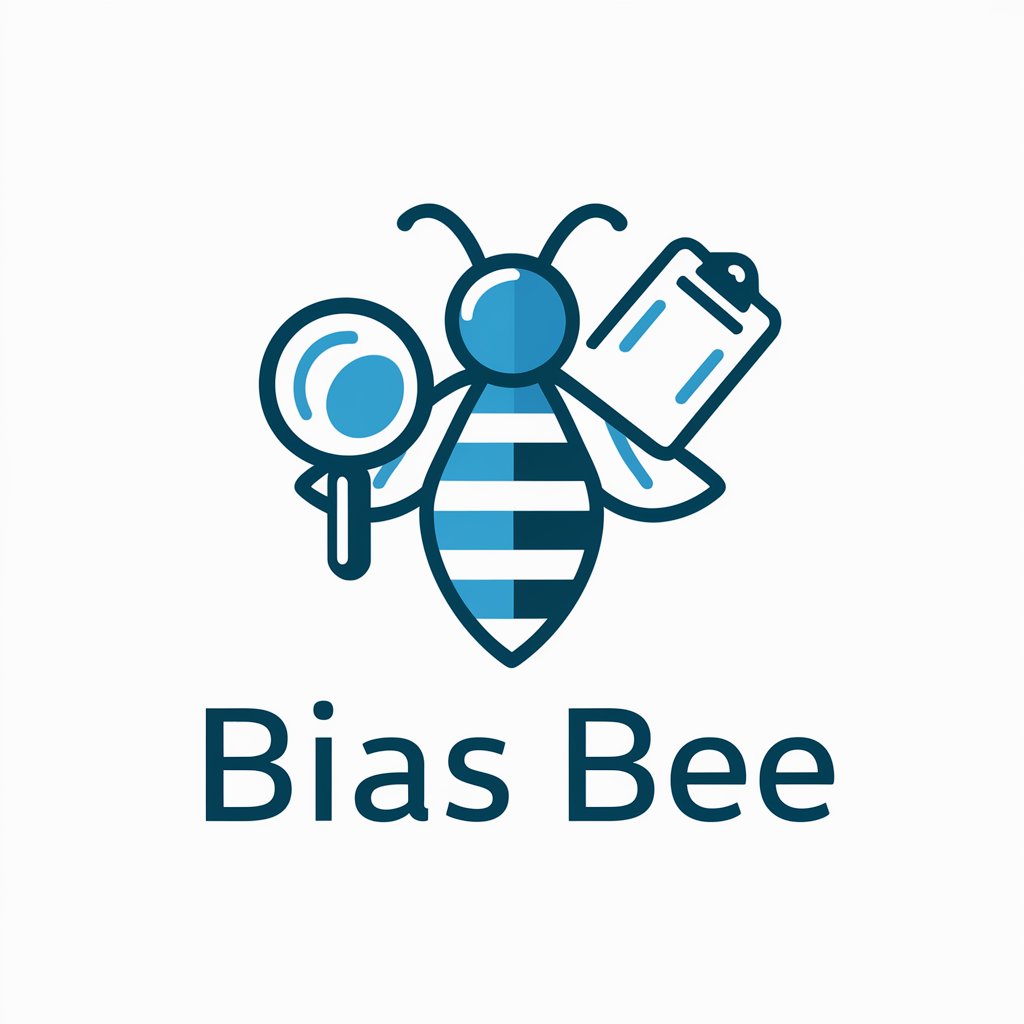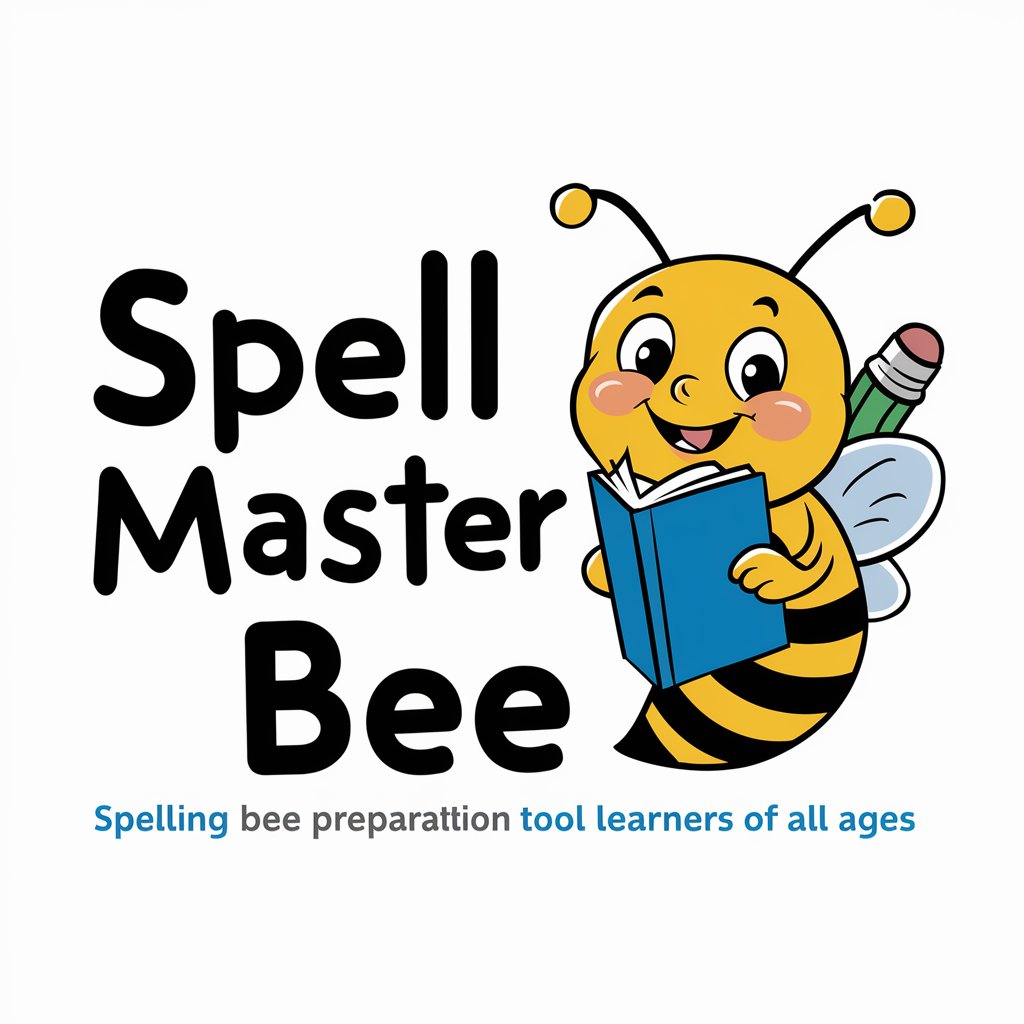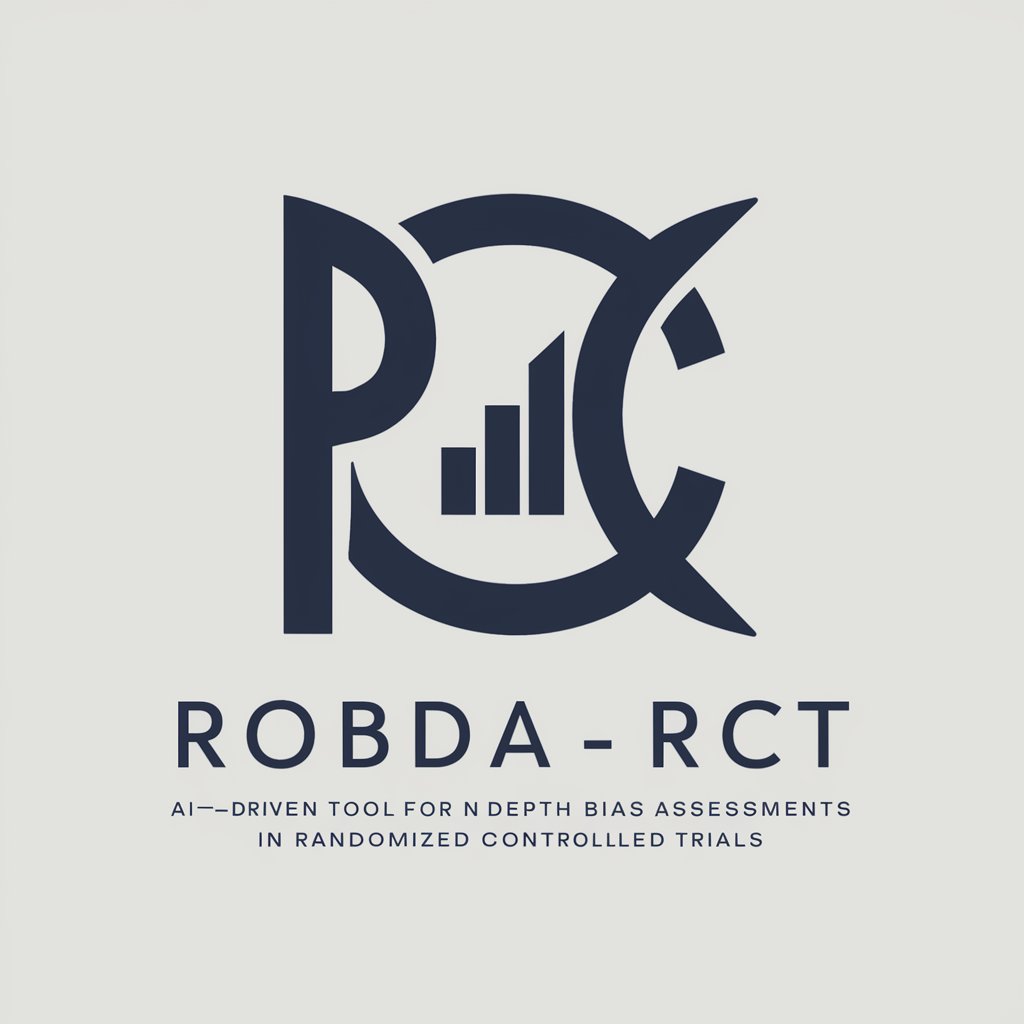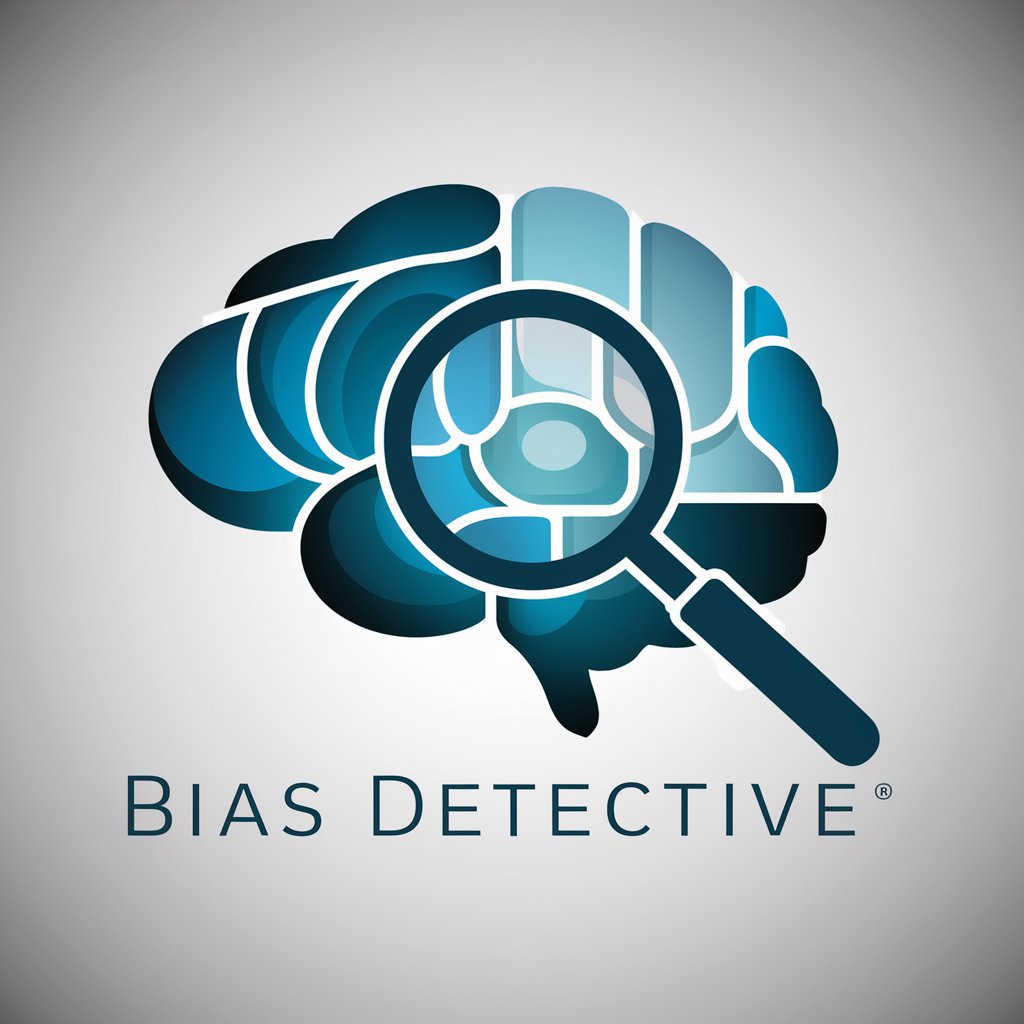
Bias Bee - version RCT - RCT Bias Evaluation Tool

Welcome to Bias Bee, your expert in RCT bias assessment.
Streamlining RCT Bias Assessment with AI
Instructions for Use
How to evaluate bias in parallel-group trials?
Assessing risk of bias in crossover trials
Cluster-randomized trials: Risk of bias considerations
Get Embed Code
Introduction to Bias Bee - version RCT
Bias Bee - version RCT is a specialized AI tool designed to assess the risk of bias in randomized controlled trials (RCTs) across various domains. It evaluates studies based on the randomization process, deviations from intended interventions, missing outcome data, measurement of the outcome, and selection of the reported result. This tool is adept at providing a detailed risk of bias judgment for each domain, supporting researchers, statisticians, and medical professionals in interpreting and assessing the quality of RCTs. By employing specific risk of bias (RoB) tools tailored to the trial type—be it crossover, cluster, or parallel trials—Bias Bee ensures that each assessment aligns with the trial's characteristics, offering a comprehensive and accurate evaluation. Powered by ChatGPT-4o。

Main Functions of Bias Bee - version RCT
Risk of Bias Assessment
Example
Assessing a crossover trial's risk of bias in its randomization process.
Scenario
In a study comparing two medications, Bias Bee evaluates if the allocation sequence was random and concealed, ensuring that the trial's outcome is reliable.
Detailed Domain Analysis
Example
Analyzing missing outcome data in a cluster-randomized trial.
Scenario
Bias Bee examines whether the missing data in a community-based intervention study could bias the results, providing insights into the study's credibility.
Overall Risk of Bias Judgment
Example
Providing an overall risk of bias judgment for a parallel-group trial.
Scenario
After evaluating all relevant domains, Bias Bee synthesizes the findings to offer an overall risk of bias verdict, aiding in the interpretation of the trial's results.
Ideal Users of Bias Bee - version RCT
Researchers
Researchers conducting or analyzing RCTs can use Bias Bee to ensure their studies' methodological rigor and to critically evaluate other trials' findings.
Statisticians
Statisticians involved in RCTs benefit from Bias Bee by obtaining a detailed analysis of the bias risks, assisting in the statistical interpretation and planning of trials.
Medical Professionals
Medical professionals can use Bias Bee to assess the quality of clinical trial evidence, guiding evidence-based decision-making in patient care.

How to Use Bias Bee - version RCT
1
Start by visiting yeschat.ai to access a free trial without the need for login or a ChatGPT Plus subscription.
2
Identify the randomized controlled trial (RCT) you wish to assess for bias and gather all relevant documents, including study protocols, results, and any supplementary materials.
3
Choose the specific domain(s) of bias you are interested in evaluating from the tool's options, such as randomization process, deviations from intended interventions, or missing outcome data.
4
Input the details of the RCT into Bias Bee - version RCT, including intervention types, outcomes measured, and any specific concerns or areas of interest.
5
Review the comprehensive risk of bias assessment provided by Bias Bee, which includes detailed judgments and rationales for each evaluated domain.
Try other advanced and practical GPTs
Mean Bee
Honesty with a Sting

Bee-Bot
Bee smart with AI-powered bee insights.

Bee Guru
Spell it Right with AI!

Astro Bee
Unveiling the stars, empowering your journey

Nikki Bee
Bringing Conversations to Life with AI

Bee
Buzzing into creativity with AI.

The Bee Keeper
Empowering Your Career Journey with AI

Content Bee
Empowering Black Women Professionals

OS Engineer
Your AI-powered OS Expert

OS helper
Demystifying Operating Systems with AI

Os Lusitanos
Explore Portugal's Future with AI

SnoopyByte - An OpenSourceIntelligence GPT
Unveiling Insights, Powering Decisions

FAQs about Bias Bee - version RCT
What is Bias Bee - version RCT?
Bias Bee - version RCT is an AI-powered tool designed to evaluate the risk of bias in randomized controlled trials (RCTs) across various domains, ensuring rigorous, accurate, and comprehensive assessments.
Can Bias Bee assess any type of RCT?
Yes, Bias Bee is equipped to assess different types of RCTs, including parallel-group, crossover, and cluster-randomized trials, by utilizing specific risk of bias tools tailored to each trial design.
How does Bias Bee ensure an accurate risk of bias assessment?
Bias Bee uses methodologies outlined in widely recognized risk of bias tools, combining AI with a comprehensive database of RCT characteristics and expert guidelines to provide detailed judgments and rationales for each assessed domain.
Is Bias Bee suitable for use by researchers without a statistical background?
Absolutely. Bias Bee is designed with an intuitive interface and provides clear, detailed explanations for each risk of bias judgment, making it accessible to researchers, clinicians, and academicians regardless of their statistical expertise.
Can Bias Bee help in systematic reviews?
Yes, Bias Bee is an invaluable tool for systematic reviewers, providing a standardized and transparent method for assessing the risk of bias in the RCTs included in their reviews, thereby enhancing the quality and reliability of review findings.




